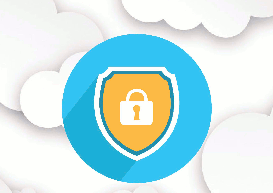Lawsonline™ Legal Topics
The Importance of Security for Video and Document Share
 Every
manner of communication from the law office to a client is expected and
understood to be strictly confidential. Naturally,
a major goal of every lawyer is to establish a lasting relationship with
the client through confidential and timely responses to the client’s needs
and requests. Therefore, an
“on-going” and “ever-ready” means of secure communication serves to
enhance the attorney-client relationship.
By the law office taking measures to assure that all disclosures,
documents, and discussions are uncompromised and secure, the lawyer
conveys to the client the fact that the client’s privacy is as important
to the lawyer as it is to the client.
Every
manner of communication from the law office to a client is expected and
understood to be strictly confidential. Naturally,
a major goal of every lawyer is to establish a lasting relationship with
the client through confidential and timely responses to the client’s needs
and requests. Therefore, an
“on-going” and “ever-ready” means of secure communication serves to
enhance the attorney-client relationship.
By the law office taking measures to assure that all disclosures,
documents, and discussions are uncompromised and secure, the lawyer
conveys to the client the fact that the client’s privacy is as important
to the lawyer as it is to the client.
In recent months there have been an alarming number
of security breaches through social media, email, major cloud
configuration systems, and other unsecure means of communication.
These breaches have created an atmosphere of concern and distrust
in regard to quite a number of products that use digital technology.
While keeping this in mind and considering today’s ever-changing
digital world, it is no surprise that clients, especially in the legal
community, have become security conscious.
Nevertheless, today’s society is becoming more and
more paperless. The federal
court system and most state court systems now mandate the electronic
filing of documents. The
medical profession has now moved to consolidate all files into electronic
formats at specific locations.
Members of the insurance industry have moved their files into electronic
server farms. Major
corporations have spent billions of dollars on server farms for electronic
filing.
Proper electronic filing is
easily accessible with today’s technology; and is more secure and
protected from: improper access, terrorist attacks, floods and other
natural disasters. Due to the
rapid pace of the business world, most lawyers depend on a form of
electronic communication as the means of providing responses and legal
analysis to their clients. But
are those lawyers forgetting security?
Regardless of whether an analysis of a client issue
is provided through face-to-face meetings, phone calls, or otherwise, it
is appropriate for the client to expect the attorney’s response to be
provided in a secure manner.
But, as noted above, some unsecure means of communication, e.g. email,
fax, social exchange sites, and open internet devises, can expose client
data and compromise security.
It is apparent that the law office cannot afford a communication breach;
therefore, a strong commitment to security must be in place.
The contemporary lawyer has a greater need to
embrace secure communications than ever before, therefore, face-to-face
meetings (personally or through videoconferencing) give the attorney an
advantage in interpreting a clients concerns and body language. As the
modern lawyer becomes more dependent on videoconferencing as the “go to”
tool for secure communications, there are certain pitfalls that should be
avoided when selecting a videoconferencing system. Just as the phone
became commonplace in every home and office, so has the computer.
Since nearly every home and office has access to a computer, it is
advantageous for the law office to utilize that technology in
communicating with clients by video.
Therefore, finding a videoconferencing service that can be used by
each client’s existing computer, without requiring software downloads or
memberships in a social network, is critical.
An additional concern, as noted in the
introduction, is to be certain that a videoconferencing system provides
the necessary security.
Unfortunately, most popular videoconferencing systems in the market place
today were built for the general public and security was not a
consideration. Therefore, a worthy videoconferencing service should
provide the attorney with a multifaceted security service that has
multiple layers of defense and encryption devices to prevent outside
intrusion.
Another essential element of effective client
communication would be remote document sharing.
Most attorney-client meetings include document review and during
such times, security is critical.
Although there are a handful of effective services that exist to
make document sharing a secure and safe experience with a client, very few
include live videoconferencing.
A system that couples document sharing with videoconferencing,
while maintaining security for both, is a service that can be confidently
used.
One more important feature to look for is client
tracking. The most effective services provide methods for the
administrator of a document storage system to not only monitor when a
client downloads a document but reports when the client views it. This
serves two purposes: to make sure the client securely viewed the document
and to provide an avenue for bill tracking.
The strongest videoconferencing platform is one
that deploys a combination of services in one location thereby eliminating
the need to acquire three or four different products.
The best and most economical solution would be a service that
provides for various needs through a comprehensive bundle of secure
videoconferencing, encrypted document sharing and storage, and
confidential client file management.
ABOUT THE AUTHOR: Vincent
A. Pundt is a Co-Founder of enlighten technologies, inc.™ and serves as
the Executive Vice President of Product Development.
He is involved on a daily basis with many of the technical aspects
of enlighten™ and holds copyrights/trademarks on the various source codes
developed for the underlying programs and websites.
The LegalConference.com web based videoconferencing, document
storage, and client file management system being marketed through the
company was conceived and initially designed by Mr. Pundt.